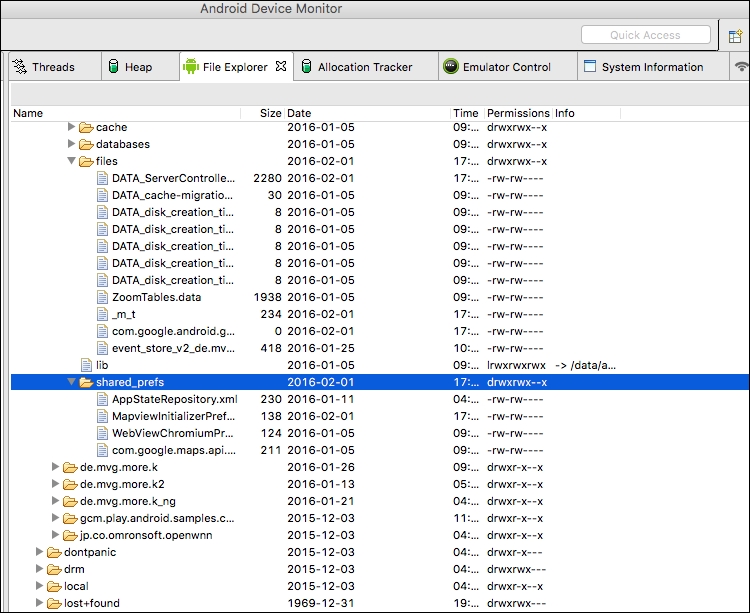Insecure storage
The storage is the process that saves information into our device or computer. Android API basically offers five different types of storage:
SharedPreferences
The first and basic one is known as SharedPreferences. This type of storage saves into XML files, in the private folder, the information we have saved as pairs of primitives associated with each value. In the following screenshot we can see all the files under the folder, shared_prefs. Those files are SharedPreferences files.

If we pull one of them from the device, we will be able to see the following content:

Each value inside the XML file has the following structure:
<string name="AppStateRepository:AppVersion">2.0.0_1266 p P 1/11/16 10:53 AM</string>
The name is composed of a combination of the filename and the variable name (the name we used to store the value). The type of the primitive SharedPreference is also delimited within the XML tag (for example, <string…</string>). And finally, the value...






















































